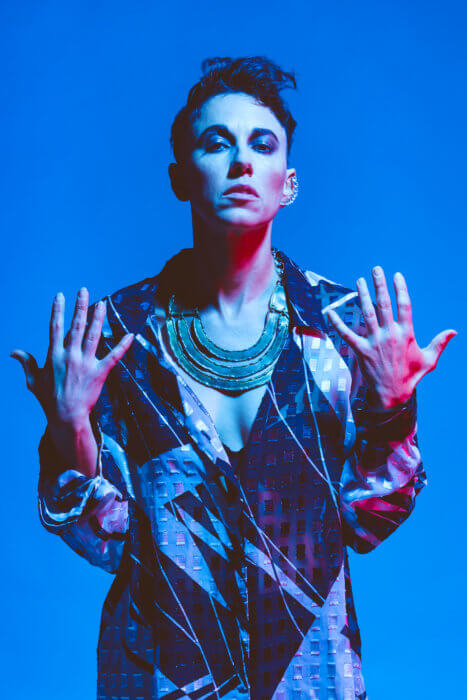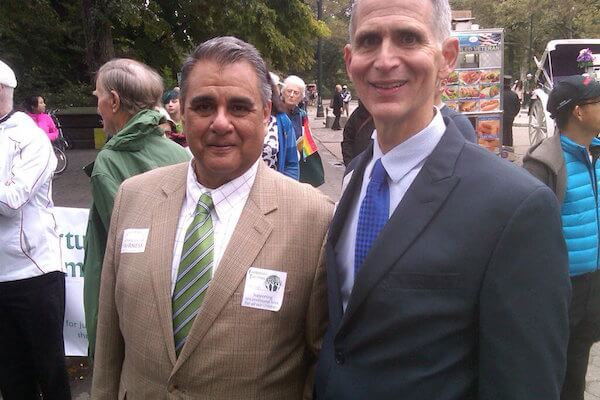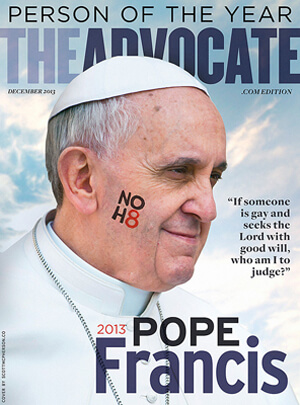The Latin Grammy might have, momentarily, slipped out of the hands of multi-award-winning singer Gina Chávez, but her desire to make a positive difference in the lives of Latinx women, especially Latinx queers, continues to gain ground.
The bilingual artist from Texas, as she defines herself, received a Latin Grammy Award nomination for her 2020 release of her first album in Spanish, “La Que Manda,” in the Best Pop/ Rock Album category. This was the first Latin Grammy nomination for the Latin American singer — and she was the only woman nominated in this category and one of the few this year overall at the Latin Grammy Awards.
Bilingual Texan broke glass ceiling as a female Latin Grammy Best Album nominee
If you haven’t listened to her songs, Chávez’s music is deeply personal, and she wins praise for her unique sound — a multi-ethnic richness of folk-pop — and most of all, for her courageous high profile as a married lesbian Catholic in Texas.
Chávez currently lives in Austin with her wife, Jodi Granado. Together, they co-founded Chicas Arriba, a college fund that offers full scholarships to a private Catholic college for girls in Soyapango, El Salvador.
Chávez’s sound has sparked interest from national television and radio shows in the US such as “NPR: First Listen,” “All Things Considered,” and “Tiny Desk Concerts.”

Just in time for the International Day for the Elimination of Violence against Women on November 25, Chávez released the music video for her first single “Ella,” honoring survivors of domestic abuse. The video, featuring an international assortment of dancers, was made in partnership with the Austin organization Survive2Thrive, which provides resources and support to victims of domestic violence and abuse.
In addition to “La Que Manda,” the artist has released two other albums that show her versatility as a songwriter and performer: “Up.Rooted” (2014), and her soul/ R&B EP “LIGHTBEAM” (2018).
I recently spoke to Chávez, in Spanish, with the English translation that follows.
KARMINA L. FONSECA: They say that a nomination is an achievement in itself. What was it like to participate in the Latin Grammys?
GINA CHÁVEZ: I’ve been on the music scene for many years, and for me it was like an arrival, an arrival of who I am as a whole. Receiving this kind of international recognition is an achievement and a dream come true, especially since I am an independent artist.
FONSECA: Besides being your first album in Spanish, what characterizes “La Que Manda?”
CHÁVEZ: It is a feminist album, of my way of being as a woman. Not just as a singer, also as an activist, as a queer and gay, as a Catholic… it feels like a culmination of all that I am.
FONSECA: In general, how do you define your new album?
CHÁVEZ: My music has many sounds and various genres. In “La Que Manda,” there is a lot of Afro-Cuban inspiration and it’s like an exclamation of being me, like a promise. The other songs talk about love and the album talks about themes like freedom and living with all your soul.
FONSECA: What challenges did you face in making this album?
CHÁVEZ: I’ve been working on some of the songs on this album for years, and it’s a struggle to get the message out of my chest and out of the recording studio in the best way possible. The album has been a struggle to finish in the middle of a pandemic.
FONSECA: Does the video for “Ella” have a special meaning for you?
CHÁVEZ: It is an artistic representation of the struggle that women face every day against domestic violence. This year we have lived together but apart. We are living in an historic moment and we are fighting, but I also think the Me To movement is to listen to the female voices that have been silenced for many years. For me, this is the meaning of the album.

FONSECA: What are you grateful for?
CHÁVEZ: Being who I am at this moment in history feels like a blessing. I would not want to live in any other era because I am gay.
FONSECA: Has being Catholic and gay caused you conflict? What do you think of Pope Francis’ statement on same-sex unions?
CHÁVEZ: I am very happy and also in a bit of a shock. For me, this is the reason that I can continue to be Catholic, and continue going to my parish with my wife next to my parents. Because the call of Christ is not to judge, it is to love, and that is the message of the pope.
GINA CHÁVEZ | “La Que Manda” | ginachavez.com
This interview first ran in Spanish in Gay City News’ sister publication noticiali.com. To sign up for the Gay City News email newsletter, visit gaycitynews.com/newsletter.


































